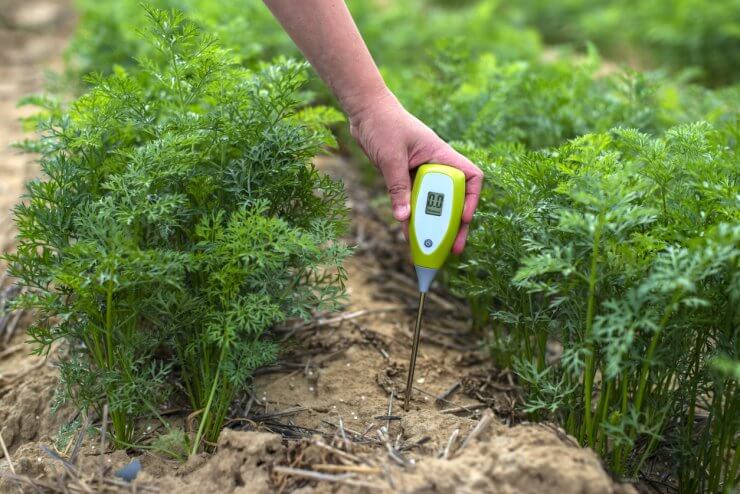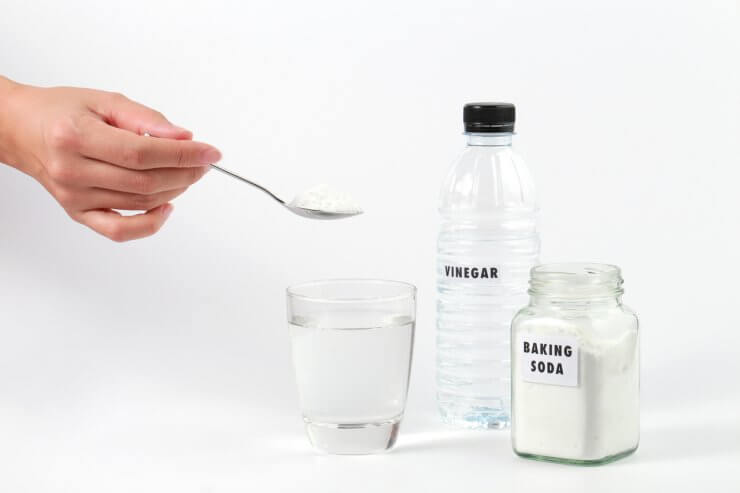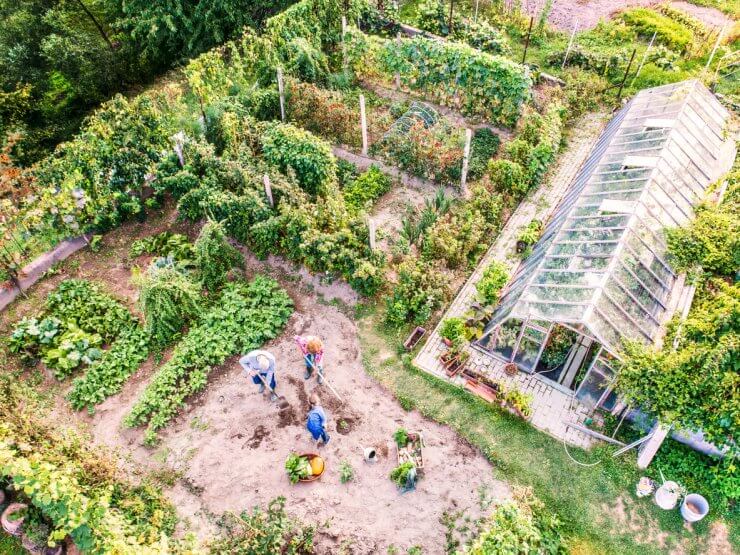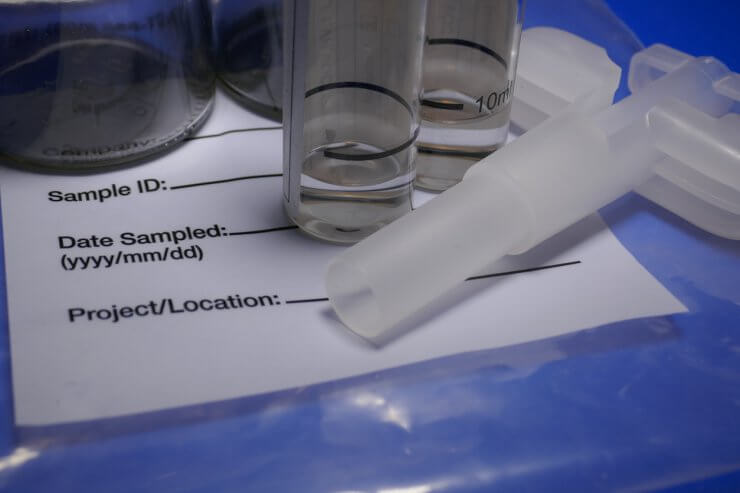
Unlike taking the SATs, testing soil pH levels in your vegetable garden should not induce stress-related hives and anxiety. On the contrary, finding out your garden’s pH level is pretty darn easy and can make a big difference in how well your garden grows.
You can test your soil at any time during the year as long as the ground isn’t frozen solid. But if you think you’ll need to amend the soil with large amounts of nutrients and organic material, it’s best to test it in the fall after your last harvest. This gives you enough time to amend the soil and let it do its thing over the winter so it’s ready to go in the spring. Testing soil pH in the fall also gives you time to plan out your vegetable garden and decide if it’s time to rotate crops based on their acidity or alkalinity needs. Here are five tips for testing soil pH that will calm even the most jittery test-taker.
Discover 7 top tips for growing, harvesting, and enjoying tomatoes from your home garden—when you access the FREE guide The Best Way to Grow Tomatoes, right now!
Use a pH meter
An easy method for testing soil pH in your vegetable garden is to use a soil pH meter. Most of them look like a long probe with a bulb or box-like meter at the top. Sometimes they measure soil moisture and light exposure too. Be sure to follow the instructions carefully on these meters as some of them take a few minutes for an accurate reading.

Use pH testing strips
For testing soil pH using test strips, you’ll need to turn your soil into a liquid first by mixing a few teaspoons of soil (removing stones and sticks) with distilled water and shake well to mix. Pour the sample through a coffee filter or sieve into a clean glass. Then dip your pH strip into the liquid and compare the color it turns to the chart that came with your test kit. Like the pH meter, follow directions that come with your specific kit since each one is a little different.

Use kitchen ingredients
If you want to go the low-budget route, try testing soil pH using simple kitchen ingredients. Mix soil and water together in a clean glass bowl (removing sticks, stones, and clumps). Add a half cup of vinegar and stir. If the soil fizzes or foams the soil is alkaline. If it doesn’t fizz or foam, do the experiment again but this time add a half-cup of baking soda and gently stir. This time, if it fizzes or foams your soil is acidic. If you do both experiments and your soil doesn’t fizz or foam from either baking soda or vinegar, your soil probably falls within the neutral range.

Test multiple areas of your garden
This is a tip for testing soil pH that I recommend for every vegetable garden no matter what method of testing you use. The soil in one area of your garden may differ in pH from another. A container garden on your porch, for instance, will probably have a different soil composition and pH than your vegetable garden bed. Testing soil pH in multiple areas of your garden can help you decide what soil amendments you need to use. It can also indicate where to plant acid-loving fruits and vegetables like cucumbers, sweet peppers, and blueberries.

Send your soil out for testing
If you have a difficult time growing vegetables in your garden and have tried the at-home tests without success, you may want to consider sending your soil sample out for testing at a local lab. Many colleges and universities that have horticulture programs will do these kinds of tests at no or reduced costs. Some municipalities, greenhouses, and nurseries will also offer these services as well. Many of these lab tests not only work at testing soil pH but also check for other nutrients, chemicals, and impurities like lead or other toxic metals. I always recommend doing this kind of test when you move to a new home to make sure the native soil is safe for planting vegetables.
Whether you choose to amend your soil or plant crops that will work best in a particular pH, testing soil pH is great knowledge for any gardener. If you go the soil amendment route, there are different ways to achieve the desired pH. In general, if you want to lower your soil’s pH, add organic materials like peat moss or coco coir. Conversely, acidic soil can be neutralized by adding lime, the mineral not the fruit! There are many other soil amendments out there to accomplish what you need. When in doubt, ask an expert at your local nursery or garden store.
Do you have experience testing soil pH? What recommendations do you have? Let me know in the comments!
Discover 7 top tips for growing, harvesting, and enjoying tomatoes from your home garden—when you access the FREE guide The Best Way to Grow Tomatoes, right now!




